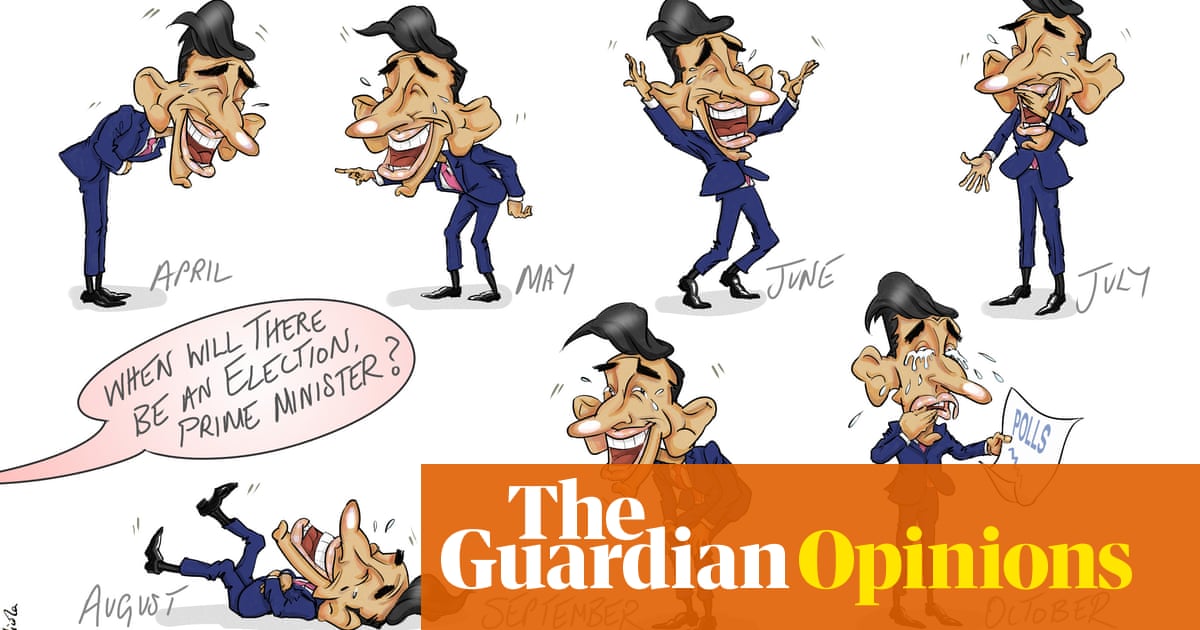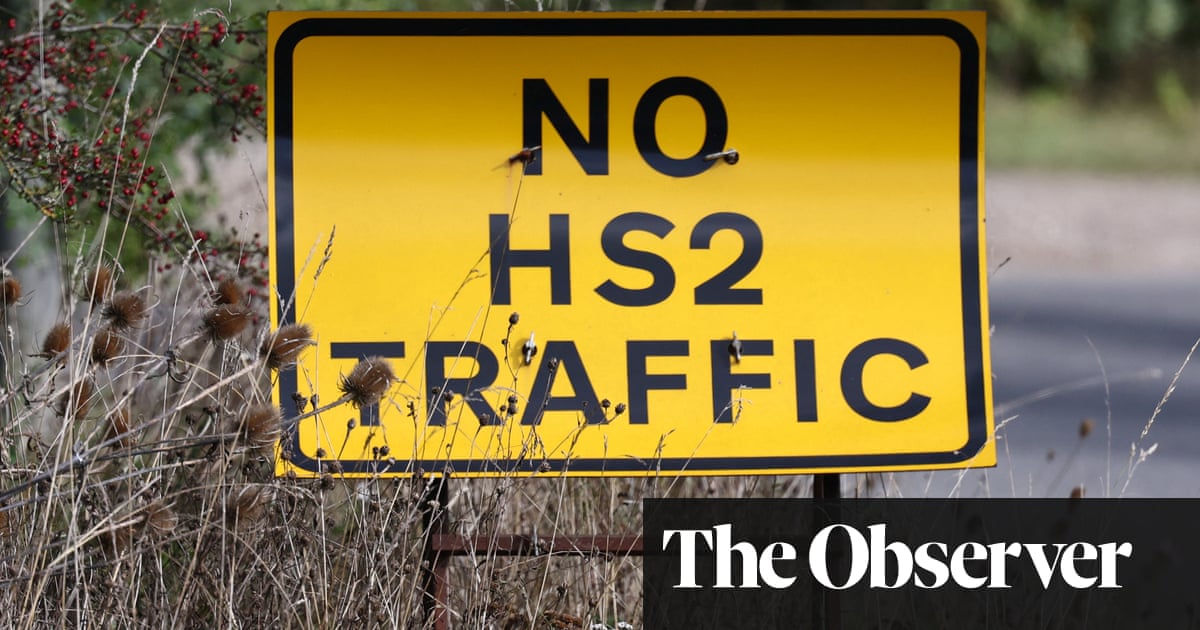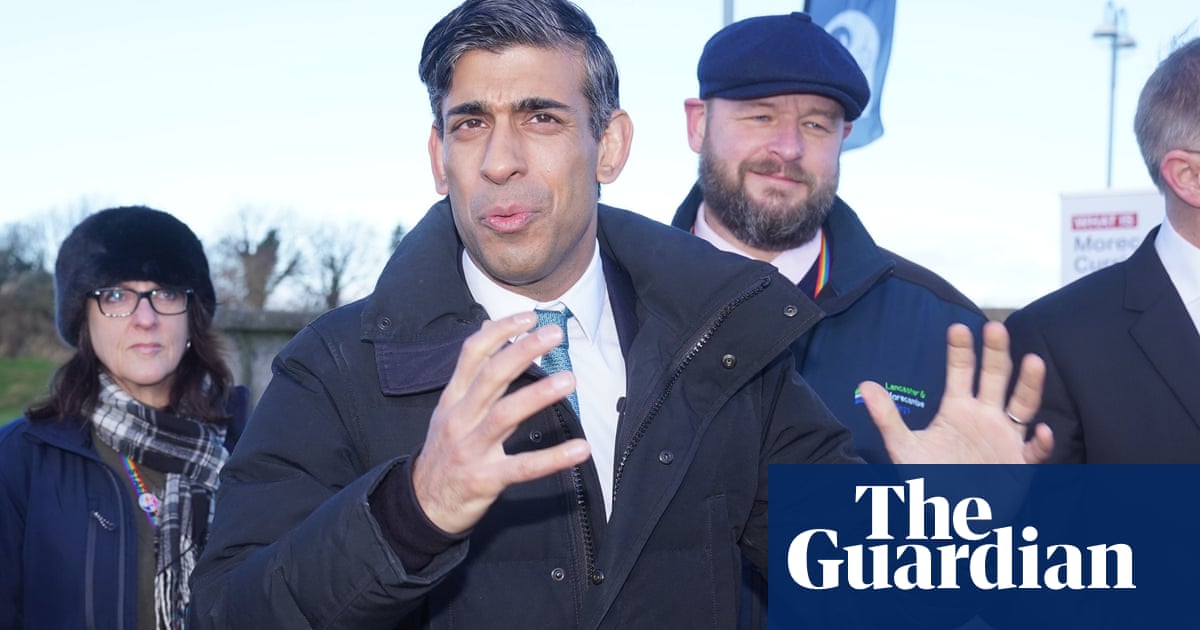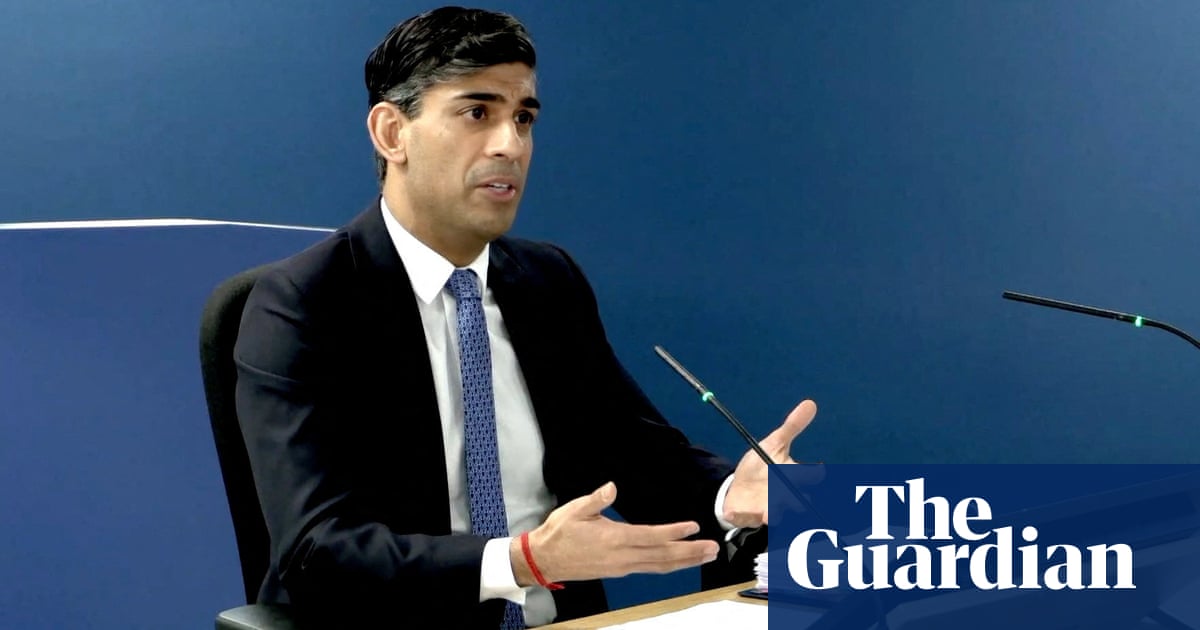
While scouring his memory for the “lots of things” he missed out on as a child, Rishi Sunak plumped for Sky TV as his best example of hardship.
But the prime minister, who attended Winchester College boarding school, did not acknowledge the role that snobbery may have played in that choice. As satellite dishes multiplied across the country, Sky was derided by critics as “council house TV” – and many wealthier families demurred from more than four channels.
Sunak was eight when Sky Television launched in 1989. Here is some of what he might have missed.
Premier League
As a self-described “massive Saints fan”, without a satellite dish Rishi Sunak might have missed seeing Matt Le Tissier’s chip from 40 yards out against Blackburn Rovers in 1994. The strike won Match of the Day’s goal of the season.
Southampton were in the midst of their longest stretch of top tier football in the 90s and Sky had exclusive rights to the newly formed Premier League. The Saints were a founder member when it launched in 1992, with the Sky Sports deal stopping many fans from watching games.
The Simpsons
The world’s most famous cartoon family first appeared on Sky One in 1990. Its quick-witted writing and social commentary set it apart from other cartoons still catering for kids.
The 90s were a golden age for Bart and Homer, who did not make it on to terrestrial channels until the latter half of the decade. Sky knew what it was on to: TV shop windows were full of branded posters and Bart had a No 1 single with Do the Bartman, even when most people couldn’t watch him on television.
WWF
Tango-coloured men fighting in Lycra was an obsession of the 80s and 90s. The wrestler Hulk Hogan became so famous children could buy figurines of him featuring his trademark handlebar moustache in toy shops.
Sky had the rights to WWF – since rebranded WWE – as its popularity peaked. The WWF Superstars even made the UK Top 10 singles chart in 1992 with Slam Jam. The franchise also launched the career of a charismatic wrestler called The Rock, who hardly sunk without a trace.
Xena: Warrior Princess
Xena fought off armies, monsters and gods with only a sword and golden breastplates for protection.
The Emmy-winning series was seen as a feminist reimagining of Greek myth and its warrior princess, played by Lucy Lawless, quickly gathered a cult following. Her sexually charged friendship with her sidekick, Gabrielle, played by Renee O’Connor, was also groundbreaking, and Xena became a gay icon.
While it was aired on terrestrial TV with the launch of Channel 5, most of the series were shown on Sky.
Dream Team
The travails of the fictional Premier League club Harchester United formed the basis of this Sky series that ran for a decade from 1997. To keep the plots fresh it went to increasingly outlandish lengths to maintain drama on and off the pitch.
Dramatic deaths included the club captain being shot by a sniper as he lifted the FA Cup, a plane crash and a bus crash killing off multiple players, and a goalkeeper in gambling debt being killed by armed police after holding other players hostage.
Other memorable deaths include the manager murdering his star player by impaling him on a dressing room peg and then suicide bombing the team bus, killing everyone onboard.
America’s Dumbest Criminals
This series scoured police and security cameras in the US for the most persuasive examples of Darwinism. There were the burglars who had to call 911 after getting trapped in a house they had robbed, the shoplifter using a carrier bag without eyeholes for a mask, and the thieves who forgot to put petrol in their getaway car.
The spectacle of really stupid people getting caught attempting crimes accompanied by a dry voiceover proved a hit with UK audiences.












